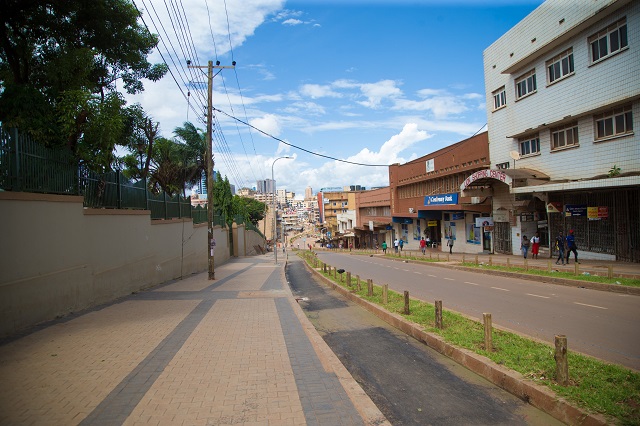
Kampala, Uganda | THE INDEPENDENT | Pollution levels in plummeted in Kampala over the last two months resulting in an improvement in air quality.
According to previous air quality indexes, Kampala had a high concentration of tinny air particles small enough to invade even the smallest airways and the air quality was six times higher than World Health Organization acceptable standards. The pollutants in Kampala are mostly caused by dust from unpaved roads, fumes from cars and open burning of waste.
But as the country was locked down to contain the spread of coronavirus disease, there was a reduction in the number of vehicles as well as other pollutants which suddenly reduced emissions especially in the central business district.
Boney Sensi, an official from Advocates for Public Spaces who has been at the forefront of fighting for greener spaces and creating awareness on air quality took us through the streets of Kampala on a mission to understand the change which could be an eye-opener on the overriding contribution of road transport to urban air pollution.
The team, armed with a wearable, portable air quality monitor called Atmo Tube Pro went to the streets to measure air quality in selected areas of the city among them, the Old taxi park, Luwum street, Nakasero market, hardware city area and Nasser road.
Sensi shares that he had moved to the same places with his gadget before the lockdown whose sensors alerted him to vacate the place due to the poor air quality. This time around, the air pollutant concentrations had greatly reduced and the sensors remained in the normal range.
The Air Quality Index scale runs from 0 to 500. The higher the scale value, the greater the level of air pollution and the greater the health concern. For example, a value of 50 or below represents good air quality while over 300 is hazardous air quality. However, the gadget used in Kampala was designed to covert the scale in terms of percentages.
On average, most of the areas in Kampala had their air quality at 75 percent. Sensi says that this is too far good given the fact that before the lockdown air quality in the said areas stood at as low as 40 percent and to someplace like Nasser road it could go as low as 30 percent.
But around hardware city, the air quality was still far below with a reading at 39 percent. Being in the place is evident that the air here is very poor filled with fumes from trucks ferrying produce and building materials.
Similar observations have been made by AirQo, a research initiative from Makerere University. The project leader Prof. Engineer Bainomugisha notes that their preliminary validation with historical comparisons for the same days of 2019 confirms the drop in pollution levels of about 40 percent of the daily mean from the two weeks leading to the lockdown and about 51 percent reduction for the same days in 2019.
Prof Bainomugisha adds that the general slow-down of pollution generating activities, from traffic to industry in the current circumstances could have had a strong immediate impact. To him, the situation indicates that there is a possibility of achieving better air quality in the city.
Exposure to poor air quality is one of the leading causes of death globally greater than smoking or war. The World Health Organization (WHO) says that air pollution is poisoning millions of children, stunting their brains and affecting their health in more ways than was previously suspected.
The threat to human health comes from exposure to near-invisible toxins that are present in polluted air as fine particles. The pollutants penetrate deep into the lungs and bloodstream and cause a range of diseases which include narrowing blood vessels which could result in a heart attack, chest pain, stroke or other respiratory diseases such as asthma, chronic bronchitis, lung cancer and pneumonia.
Unfortunately, people working in the polluted areas like Kampala city are not aware that they are breathing to death. Eddie Lutaaya, a city dweller found at the Nakasero market told our reporter that air quality is not one of their worries because to him, Africans are immune to such things.
Dr Tom Okurut, the National Environment Management Authority Executive Director says that they are coming up with the standard of air quality for Kampala and the country. Okurut adds that other interventions to ensure that Kampala has cleaner air even after the lockdown are being discussed with stakeholders including but not limited to Kampala Capital City Authority.
Dr Okurut further argues that some of the interventions that could lead to greener air like putting up a the better mass transport system, paving streets and putting up a non-motorized transport system in addition to creating green spaces in the city have been partially implemented.
******
URN
 The Independent Uganda: You get the Truth we Pay the Price
The Independent Uganda: You get the Truth we Pay the Price


